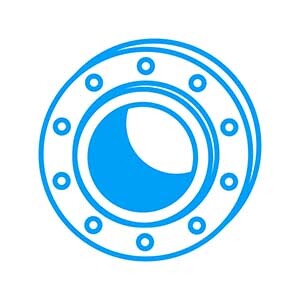Stainless Steel Tubes
101 Product(s)Stainless steel pipes overview
Stainless steel pipes are essential components in numerous industries that place the highest demands on material quality and longevity. Their corrosion resistance, good Strength and versatility make them the preferred choice for applications in the chemical, food, pharmaceutical, construction and automotive industries.
Product features
Stainless steel pipes are available in various types and specifications, including seamless and welded varieties. Seamless pipes are characterized by their homogeneous structure and high pressure resistance, while welded pipes impress with their precise manufacturing and cost-efficient production. Typical materials are 1.4301 (304), 1.4404 (316L), and 1.4571 (316Ti), all of which offer specific advantages.
Specifications and dimensions
Stainless steel pipes are available in various dimensions and wall thicknesses. For example:
-
Seamless pipes: diameter of 6 mm up to 219 mm, wall thicknesses from 1 mm to 14.2 mm.
-
Welded pipes: diameter of 10 mm to 159 mm, wall thicknesses from 1 mm to 6.3 mm.
These pipes meet the strict standards such as EN 10216-5, EN 10217-7 and ASTM A312, which ensures their high quality and reliability.
Benefits and applications
The outstanding properties of stainless steel pipes make them ideal for demanding applications:
-
Corrosion resistance: Perfect for use in damp or chemically aggressive environments.
-
Good Temperature resistance: Suitable for applications with extreme temperature conditions.
-
Long lifespan: Minimal maintenance and long-lasting performance.
-
Hygienic and easy to clean: Ideal for the food and pharmaceutical industries.
Why choose stainless steel pipes?
Stainless steel tubing offers an unbeatable combination of strength, durability and versatility. Their use results in long-term cost savings and reduced maintenance. In addition, they contribute to improved safety and reliability in all applications.
Conclusion
Whether for industrial applications, construction projects or specialized areas of application – stainless steel pipes are the optimal choice for quality and durability. Invest in stainless steel pipes and benefit from the outstanding properties and durability of these first-class materials.
FAQ - Stainless Steel Pipes
1. What are the main advantages of stainless steel pipes over other materials?
Stainless steel pipes offer several advantages, including attractive Corrosion resistance in a natural atmosphere, good Strength, temperature resistance and longevity. They are also hygienic and easy to clean, making them ideal for the food and pharmaceutical industries.
2. What types of stainless steel pipes are there and where are they used?
There are mainly two types of stainless steel pipes: seamless and welded pipes. Seamless pipes are often used in high pressure applications and the chemical industry, while welded pipes are often used in construction projects and general industrial applications.
3. What standards and specifications do stainless steel pipes meet?
Stainless steel pipes meet various international standards such as EN 10216-5, EN 10217-7 and ASTM A312. These standards ensure that the pipes meet the required quality and safety standards.
4. How do I choose the right stainless steel alloy for my application?
Choosing the right stainless steel alloy depends on the specific requirements of your application. For example, 1.4301 (304) is good for general applications, while 1.4404 (316L) offers better corrosion resistance and is ideal for more aggressive environments. Consulting with an expert can help you make the best choice.
5. How do I care for and maintain stainless steel pipes to maximize their lifespan?
Stainless steel pipes are relatively easy to maintain, but regular inspections and cleanings can extend their lifespan. It is important to keep them away from harsh chemicals and clean them regularly with appropriate cleaning products to prevent deposits and corrosion.
